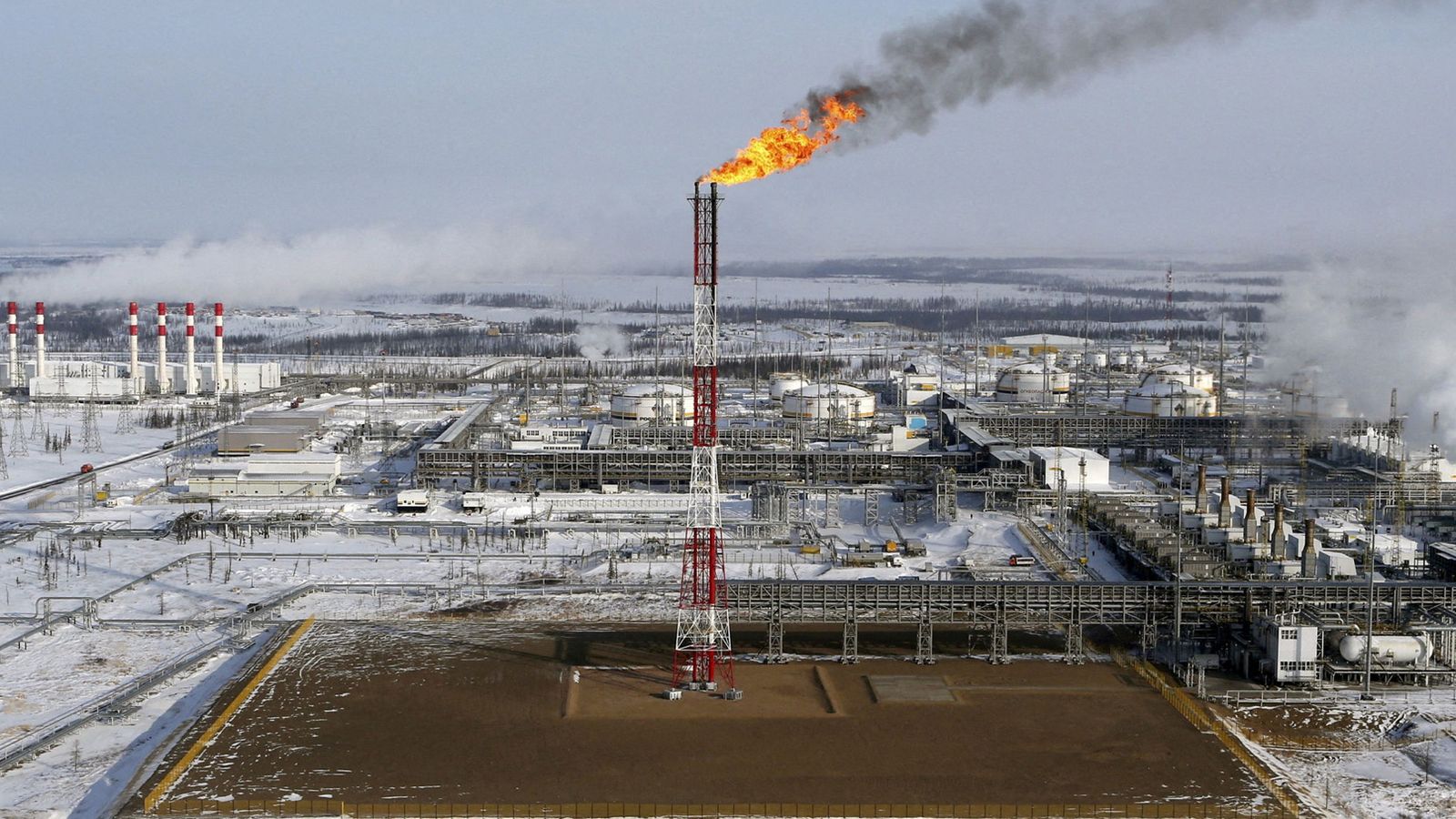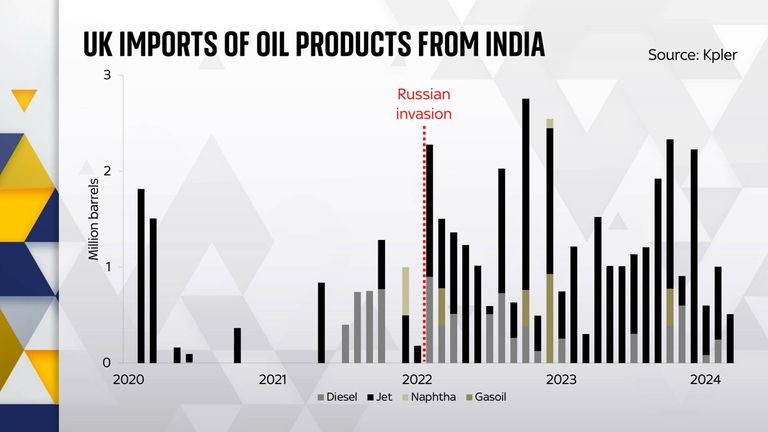Russian oil still seeping into UK – the reasons why sanctions are not working

The Russian state has been making more money from its oil and gas industry in the past three months than in any comparable period since the early days of the Ukraine invasion, it has emerged.
The figures underline that despite the imposition of various sanctions on fossil fuel exports from Russia since February 2022, the country is still making significant sums from them. This is in part because rather than preventing Russia from exporting oil, gas and coal, they have simply changed the geography of the global fossil fuels business.
In the three months to April, Russia made a monthly average of 1.2 trillion rubles (£10.4bn) from its oil and gas revenues, according to Sky analysis of figures collected by Bloomberg.
That is the highest three-month average since April 2022.
It comes amid elevated oil prices and concerns that sanctions on Russia are failing to prevent the country earning money and waging war on Ukraine.
Before the invasion of Ukraine, the world’s biggest recipients of Russian oil experts were the European Union, the US and China. Since then, the UK, US and EU have banned the import of crude oil or refined products from Russia.
G7 nations have also introduced a price cap which aims to prevent any Western companies – from shipping firms to insurers – from assisting with any Russian oil exports for anything more than $60 a barrel.
However, Russia continues to export just as much oil as it did before the invasion of Ukraine and the imposition of the price cap.
Sanctions experts say the price cap has been a qualified success, since it has slightly reduced the potential revenues enjoyed by the Kremlin, if it intends to ship that oil via most commercial ships. In response, Russia is reported to have built up a so-called “dark fleet” of ships carrying Russian oil without obeying those sanctions.
The top three destinations for Russian oil are now China, India and Turkey. The UK now imports considerably more oil and oil products from the Middle East than before, making it more reliant on the Gulf.
However, Russian fossil fuel molecules are still being exported to the UK, albeit indirectly, because the sanctions imposed by western nations do not cover oil products refined elsewhere.
The upshot is that Indian refineries are importing a record amount of oil from Russia, and Britain is importing a record amount of oil from Indian refineries – up by 176% since the invasion of Ukraine.
At least some Russian oil still powers the cars in Britain and the planes refilling in British airports, but because it is impossible to trace the fossil fuels molecule by molecule, it is hard to know precisely how much.
Related
Why investing in women is a vital next step for…
Get Nadine White's Race Report newsletter for a fresh perspective on the week's newsGet our free newsletter from The Independent's Race CorrespondentGet our fre
Business secretary signals major shift on electric car policy to…
In a determined effort to retain Nissan’s manufacturing presence in Britain, Business Secretary Jonathan Reynolds has vowed to implement “substantial c
Joint Statement: Business Secretary and Fujitsu Services Ltd
Business and Trade Secretary Jonathan Reynolds today (Friday 7 March) met chiefs for Fujitsu in Tokyo to begin talks over the cost of redress for victims of th
UK foreign secretary backs multilateral defence funding for Europe
UK foreign secretary David Lammy has said that a new multilateral fund will be needed to secure Europe’s defence as he confirmed that Britain is “open to”














